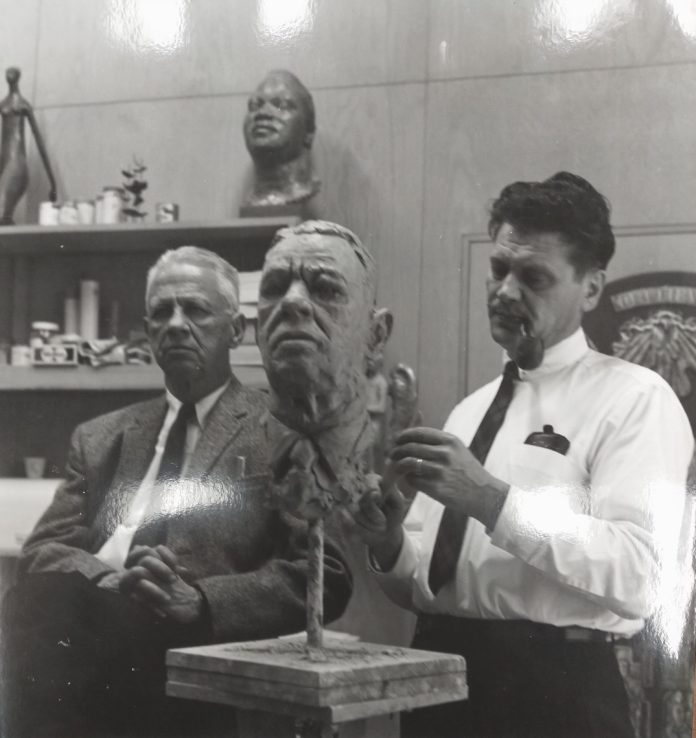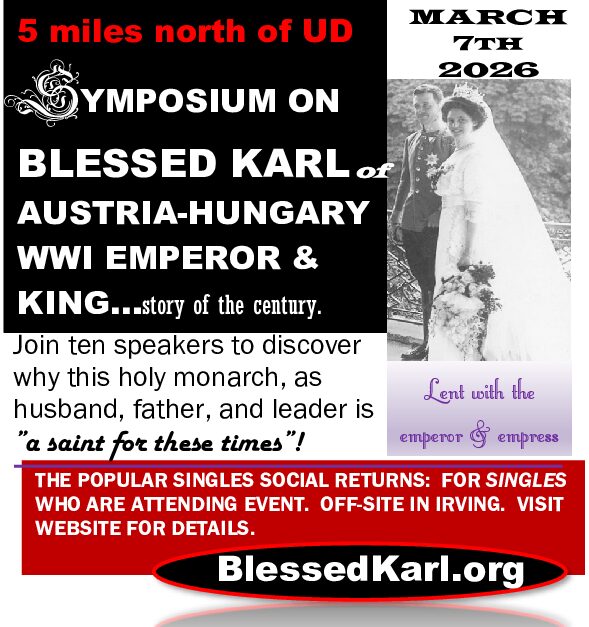
Dr. Willmoore Kendall came to teach at the University of Dallas in 1963. He was the first chairman of the Politics Department, and he worked with Dr. Louise Cowan to establish the Institute of Philosophic Studies (IPS) doctoral program. A renowned political theorist, Professor Kendall was hugely influential in UD’s early days.
Kendall in the classroom
Class with Professor Kendall started on time and was always on track, according to Sister Mary Brian Bole, SSND. There were never any funny stories, no personal convictions, and no rants.
“If you hadn’t done your homework, you were done for,” Bole said. “He could just sense the fear and would go after you.”
“He spent the first 10 minutes telling the class where he wanted to go, then the next 40 were spent in discussion,” Bole added.
“He was teaching not simply a body of principles, but how to think,” said Dr. John Alvis, a former student of Kendall’s and a professor in the English Department.
“He was the most Socratic teacher I ever had,” Bole said. “The only exception was when [Kendall] picked up his mail. He would walk into class carrying a box, grinning ear to ear.”
“[Kendall] was known to be fond of plaid sportcoats, and many of his associates sent him coats, usually from Europe,” Bole added. “Whenever he received a new coat, he would show it to the class; he must have had 40.”
Political Theory
“His conservatism was unique,” wrote de Alvarez in his essay, “Willmoore Kendall: American Conservative.” “The essential principle … was a belief in the virtue of the American.”
“It was typical of the man that he struck out alone to form his own vision of America … that no one else who called himself a ‘Conservative’ seemed to share.”
“The American people, he never tired of saying, continued to live the tradition ‘in their hips,’” wrote de Alvarez.
By “in their hips,” Kendall meant that Americans continued to practice a political tradition merely because it was all that they had ever done, not because they understood it.
“For to ‘feel in one’s hips’ is not the same as ‘to know,’” wrote de Alvarez.
Kendall thought that this lack of understanding was the cause of the “‘two majorities’ in American politics; one majority seeking to revolutionize American political order by transforming it into a modern nation-state in the image of Machiavelli and Hobbes; the other stubbornly preserving and continuing that particularly successful republic established in 1789,” according to de Alvarez.
Kendall also believed that the Federalist Papers were a masterpiece of political philosophy, because they provided an answer to the central difficulty of majority rule, according to de Alvarez.
“[Kendall] wanted above all to make Americans understand that their chief concern ought to be the protection of that infinitely complex, delicate and beautiful mechanism set up by Publius [pseudonym for the authors of the ‘Federalist Papers’],” wrote de Alvarez.
Influence
The IPS doctoral program that Kendall established combines political philosophy and literature, according to de Alvarez.
“He was a political philosopher and not a political scientist in the modern sense, and he was therefore concerned with the defense of language,” de Alvarez wrote. “His job was to present the truth about the discipline of politics; what side a student wanted to take was up to him to decide.”
“This absolute honesty in Kendall drew him the profound loyalty of his students,” de Alvarez said. “He put all of himself at the command of his students … all of his energy [went] into his personal relationships.”
“His profound devotion to his students was a legend,” de Alvarez added.
Kendall believed that America was to be “kept virtuous through a ‘self chosen’ select minority,” according to de Alvarez. This minority would be comprised of teachers whose chief purpose would be to “keep alive and develop in the people ‘historical memory,’ that is, knowledge of their own traditions.”
“[Kendall] took as his particular responsibility the formation of [these] young teachers,” de Alvarez added. “To countless young men and women, their encounter with Kendall ended in a fundamental transformation of their lives. He educed that ‘turning-about’ of the soul that is supposed to be the aim of all teachers but is so very seldom achieved.”
